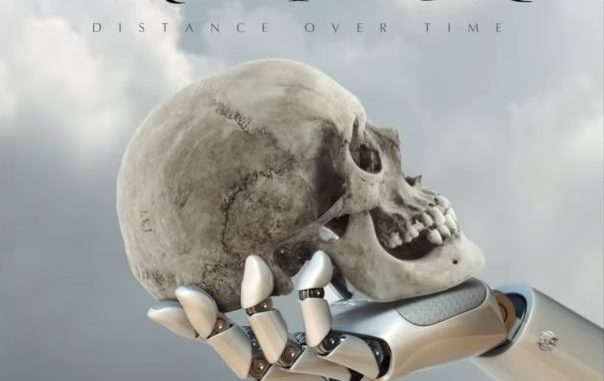
Dream Theater received a wide range of opinions from their lengthy concept album, The Astonishing, from 2016. But now they’re back with the formula that brought us 21st century classics including Systematic Chaos and Black Clouds & Silver Linings.
Distance Over Time excels in the band’s consistent progressive brilliance with many highlights proving their songwriting is improving with age. Listeners can enjoy the endless array of influences ranging from Deep Purple to Rush.
The album takes off with a signature opener, Untethered Angel, driven by the impressive vocal capacity of James LaBrie. Followed by Paralyzed, the band provides the ideal modern metal track suitable for casual fans and radio stations.
The third song, Fall Into The Light, is where Dream Theater really fires on all cylinders as each member shines with their own distinctive moment. Beginning with a great intro filled with cool riffs and tempo changes, all focus zeros in on LaBrie’s voice. It may not be exactly like the 90’s but it still packs a hell of a punch. Just when you think the song is winding down and coming to a close, Petrucci emerges with an acoustic guitar before switching over to an electric and capturing the ultimate Joe Satriani/Jason Becker playing style. After a beautiful transition, it throws listeners into an incredible Jon Lord-esque keyboard solo by Jordan Rudess. If that wasn’t enough, there’s a badass outro solo as a last impression.
By the time you get to the middle of Distance Over Time, that’s when you can hear them trying to reach back to their early years and fuse it with their modern sound. Barstool Warrior sounds like it could easily be on Images And Words with its infectious melodies carrying it the whole way through. S2N proves that the band can blend the old with the new and not sound like everyone else who tries to go retro and use modern production.
Prior to recording, Petrucci stated that they wanted to go back to shorter songs that would make the album an hour long this time. A refreshing change of pace for those who were put off by the extensive prog worship. Anyone who doesn’t see it as full throwback can surely admit that it is step in the right direction for a potential follow up.
When this album does go full on prog, it ends up making it the magnum opus of the entire record. At Wit’s End is the best of both worlds. Opening with an instant attention-getter, it draws you in with a metal riff. Once you reach the pre-chorus, it’s obvious this is LaBrie’s finest hour without a doubt. It all comes to satisfying ending with Petrucci’s larger-than-life outro slowly fading out. It’s a melodic epic with an edge combining the catchy moments found on albums like A Dramatic Turn Of Events and making it complete with the progressive metal punch.
The best part of Distance Over Time is this is the perfect gateway album for skeptical listeners who don’t know what to expect from Dream Theater or progressive bands overall. It has components from an infinite array of genres from the jazz style time signatures to the neoclassical guitar solos. Yes and Genesis can appreciate the chaotic jamming and metal fans will love the aggressive riffs.
Many have criticized the post-Mike Portnoy era as an uninteresting saga of scraping the barrel. However, that could not be further from truth since Dream Theater has continued to expand themselves musically in recent years and Distance Over Time is living proof of it. Although the band has experienced widespread backlash following The Astonishing, listeners can expect a complete return to form as they go back to their classic songwriting roots.

Leave a Reply